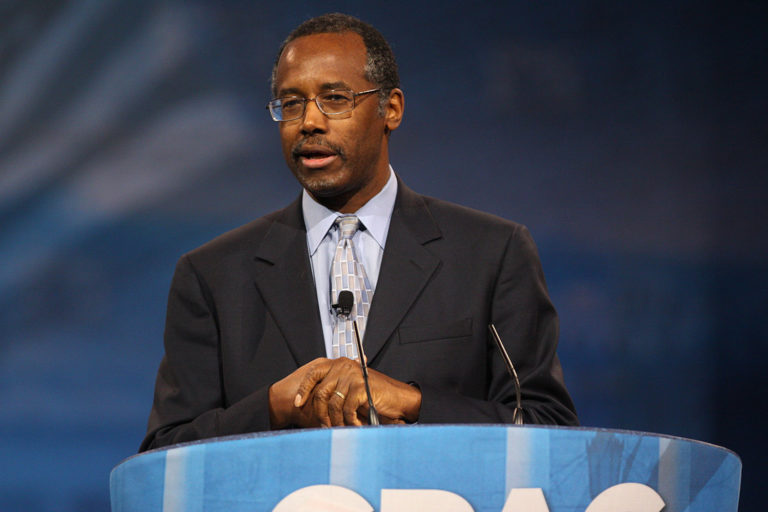by Matthew Pertz, Opinion Editor
Editor’s note: Find the first half of this article here.
Donald Trump is now officially the forty-fifth president of the United States, and the policies his administration pursues are largely dependent on the individuals that will surround him. Here’s a look at some of the people who will shape the next four years of the executive branch and the grades I would give them.
Sec. of Health & Human Services – Rep. Tom Price (R-Ga.): F
Congressman Price’s financial dealings are under the microscope after CNN reported this past week that he bought up to $15,000 shares in Zimmer Biomet, a medical device manufacturer, just days before introducing legislation that would benefit the company. Zimmer Biomet would have been slammed by a new regulation had Price not proposed a pushback of the law.
Sec. of Housing & Urban Development – Ben Carson: C
Trump initially offered to make Carson his Secretary of Health and Human Services, an offer which Carson declined because, according to his advisor Armstrong Williams, “Dr. Carson feels he has no government experience, he’s never run a federal agency.” That’s a perfectly fair reason to decline a cabinet post, except Carson flipped and decided to become Secretary of HUD a week later. It’s obvious Carson would have been better suited to HHS: he’s been heralded as a brilliant neurosurgeon, but he only has theoretical knowledge of housing policy.
Sec. of the Interior – Rep. Ryan Zinke (R-Mont.): B+
The Department of the Interior’s main focus over the past eight years has been protecting Native Americans’ land and preserving natural resources in the form of National Parks. Zinke’s recent House votes seem to coincide with those policies. He’s supported bipartisan acts on resource protection and recognition for the Blackfeet tribe. The Interior is a tricky department: politicians on both sides of the aisle can’t agree on whether America should utilize its natural resources or protect them, so continuation of current policy seems like a good idea until consensus is found.
Sec. of Commerce – Wilbur Ross: A-
The Department of Commerce strives to “create the conditions for economic growth and opportunity,” and considering Trump’s pro-business stance this office is now exponentially more important during his presidency. Since his nomination in late December, Ross has successfully divested himself of over ninety percent of his financial holdings, a feat that President Trump has yet to complete. Ross holds many of the same trade views as Trump (holding American companies and interests over all else) but said he’ll prioritize saving jobs even if it means changing those beliefs.
Sec. of Labor – Andrew Puzder: C
Puzder, the CEO of fast food chains Hardee’s and Carl’s Jr., is a proud opponent of raising the minimum wage, arguing that it would eliminate jobs. He believes that tax breaks and regulatory relief would allow corporations to make more money and reinvest that money into job creation. He doesn’t earn a C for his views, however; he’s a below-average candidate because of his unscrupulous dealings with the Trump campaign. According to the Federal Election Commission, the Puzder family contributed well above $300,000 to Trump’s campaign, raising ethical questions about why Andrew was selected.
Sec. of Energy – Former Gov. Rick Perry (R-Texas): D
Gov. Perry’s been mercilessly mocked for forgetting the Department of Energy’s name during a 2011 Republican primary debate. But beyond the obvious, Perry is a dangerous dive from precedent: the last Secretary of Energy, Dr. Ernest Moniz, is a Stanford-educated and MIT-trained physicist, which is somehow less impressive than his predecessor Dr. Steven Chu, winner of the 1997 Nobel Prize in Physics for “develop[ing] methods of using laser light to cool gases.” Meanwhile, Perry received a C in his General Chemistry course at Texas A&M, which turned out to be his academic peak; he earned Ds in “Feed & Feeding” and “Meats.” This nomination deserves an F, but I’m awarding a D for irony’s sake.
Sec. of Veterans’ Affairs – David Shulkin: A
Dr. Shulkin is an Obama holdover; he was previously the undersecretary of the VA. His list of qualifications is extensive: former president and CEO of Beth Israel in NYC, chief medical officer at the University of Pennsylvania and, according to Modern Healthcare and Modern Physician, one of America’s 50 most influential physicians. Given his seemingly boundless resume, he seems most qualified to fix the perpetually backlogged VA.
Sec. of Homeland Security – Ret. Gen. John F. Kelly: A-
Kelly, along with James Mattis, was overwhelmingly confirmed on Inauguration Day. Both parties spoke glowingly of Kelly, and rightfully so: he differs from his boss on several controversial policies, including mass deportations, banning Muslim immigrants and building the infamous wall.




